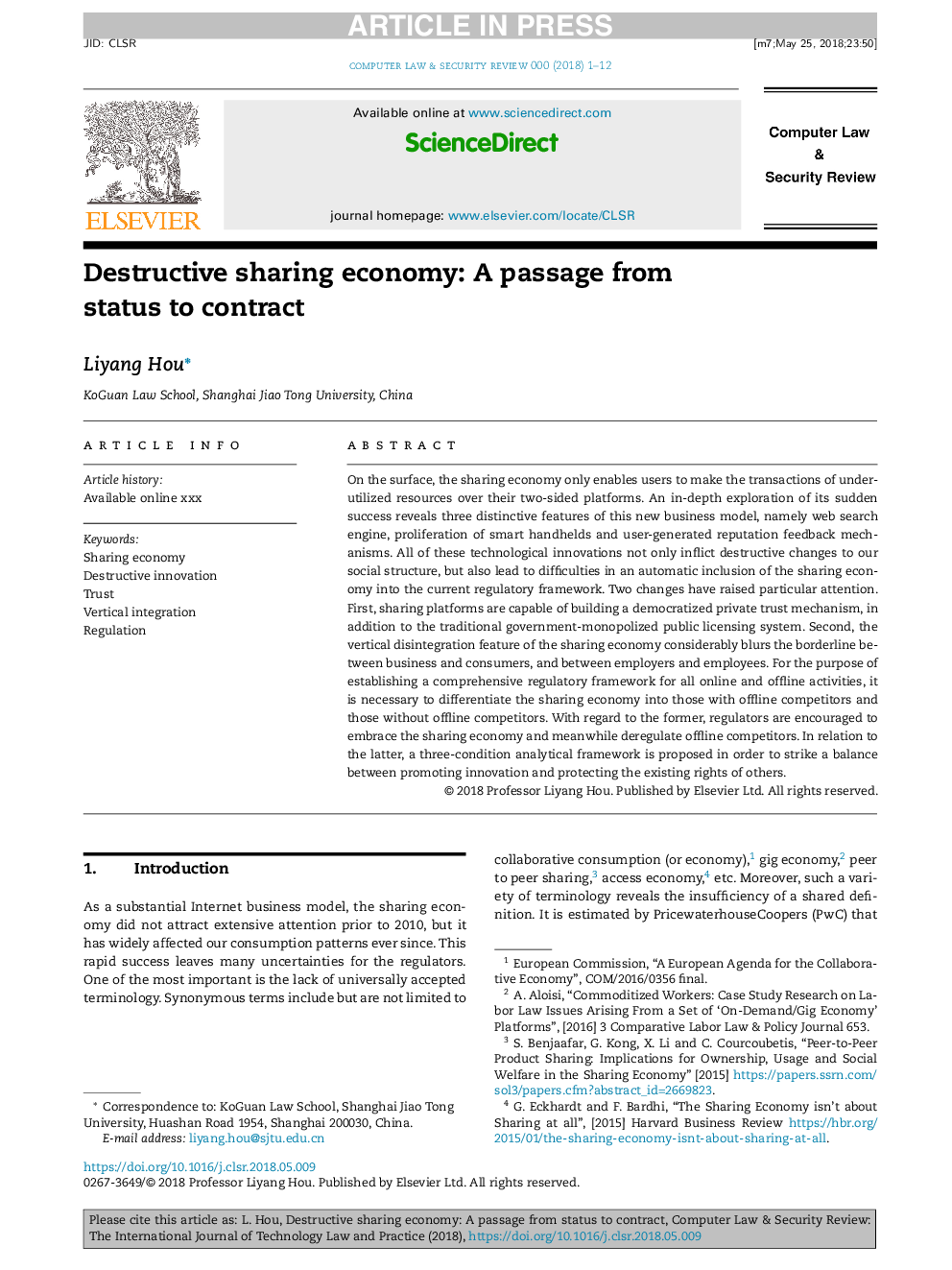| Article ID | Journal | Published Year | Pages | File Type |
|---|---|---|---|---|
| 6890452 | Computer Law & Security Review | 2018 | 12 Pages |
Abstract
On the surface, the sharing economy only enables users to make the transactions of under-utilized resources over their two-sided platforms. An in-depth exploration of its sudden success reveals three distinctive features of this new business model, namely web search engine, proliferation of smart handhelds and user-generated reputation feedback mechanisms. All of these technological innovations not only inflict destructive changes to our social structure, but also lead to difficulties in an automatic inclusion of the sharing economy into the current regulatory framework. Two changes have raised particular attention. First, sharing platforms are capable of building a democratized private trust mechanism, in addition to the traditional government-monopolized public licensing system. Second, the vertical disintegration feature of the sharing economy considerably blurs the borderline between business and consumers, and between employers and employees. For the purpose of establishing a comprehensive regulatory framework for all online and offline activities, it is necessary to differentiate the sharing economy into those with offline competitors and those without offline competitors. With regard to the former, regulators are encouraged to embrace the sharing economy and meanwhile deregulate offline competitors. In relation to the latter, a three-condition analytical framework is proposed in order to strike a balance between promoting innovation and protecting the existing rights of others.
Related Topics
Physical Sciences and Engineering
Computer Science
Computer Science (General)
Authors
Liyang Hou,
